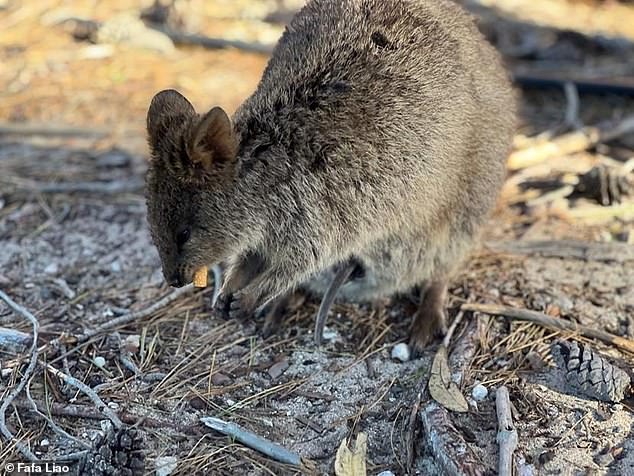A tourist’s photograph of a quokka eating a discarded cigarette butt has exposed Australia’s biggest litter problem.
Fafa Liao was visiting Rottnest Island, a popular tourist destination in Western Australia off the coast of Perth, on July 16 when she captured the sad moment.
The Taiwanese woman watched as the island’s famous marsupial began eating her cigarette butt.
Shocked, Ms Liao took a photo of the animal and explained that she was “deeply saddened” by what she saw, especially as the quokka clearly had a baby in its pouch.
Ms Liao called for regular clean-ups of quokka habitat and urged authorities to raise awareness of the danger litter can cause to the marsupials.
“As a concerned visitor, I believe it is crucial to address this issue quickly to protect both the quokkas and their habitat,” Ms Liao told PerthNow.
Ms Liao also urged authorities to impose tougher penalties for littering, which currently carries a $200 fine.
A spokesman for the Rottnest Island Authority insisted the welfare of the “iconic quokkas” was the top priority.
Taiwanese tourist Fafa Liao was visiting Rottnest Island when she spotted a quokka eating a discarded cigarette butt (pictured)
“The welfare of all wildlife, including the iconic quokkas, is a top priority for the Rottnest Island Authority,” the spokesperson said.
‘We urge all visitors to help protect the island by disposing of waste responsibly.’
There are signs all over the island clearly warning tourists to limit their interactions with the tiny, smiling wallabies.
Around 10,000 quokkas live on Rottnest Island, making this marsupial a vulnerable species.
The Rottnest Island Authority carries out regular litter clearing and street sweeping activities in the public and recreational areas of the holiday attraction.
Information on proper waste disposal and the protection of native wildlife is also available on the island, on visitor maps and on the Internet.


